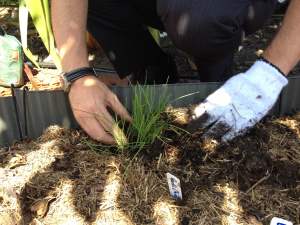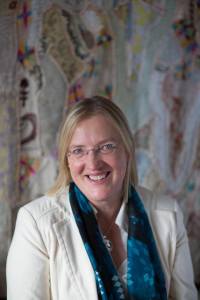A  concern for the creation has been present within our church for many years. Both Maroubra Junction and Maroubra Bay congregations had significant commitments to engaging in environmental concerns – through the Friends of Malabar Headland group, Project Green Church and participation in the 350.org movement. More recently our church has launched a Community Garden in partnership with other local groups.
concern for the creation has been present within our church for many years. Both Maroubra Junction and Maroubra Bay congregations had significant commitments to engaging in environmental concerns – through the Friends of Malabar Headland group, Project Green Church and participation in the 350.org movement. More recently our church has launched a Community Garden in partnership with other local groups.
There is no sense that we are experts in the area – but we have been possessed by a persistent wondering and interrogating of our Christian faith with questions of sustainability, responsibility and connection to the earth.
What do we think Paul means when he claims that “in Christ God was reconciling the world to Godself… and entrusting the message of reconciliation to us.” [2 Corinthians 5:19]
So much of our conversation around the environment can at times be reduced to technological details and economic systems. And indeed these are vital components of the conversation. But what if the crisis we face goes deeper than what we do. What if it embraces how we see ourselves and who we see ourselves in relationship with?
“At the heart of the pathology of ecological crisis is the refusal of modern humans to see themselves as creatures, contingently embedded in networks of relationships with other creatures, and with the Creator.” Michael S Northcott, “A Moral Climate; the ethics of global warming” 2007, p.16.
Eco-theology is a vital concern for all who would follow Jesus today. Not only because it is a major social issue, but because it also addresses our fundamental questions of identity and belonging. Who do we belong to?
One way of exploring these question some more will be to attend this year’s School of Discipleship. SOD is rapidly approaching again (July 3-6, 2015) and this year our theme is,  “Where on Earth is God?: Discipleship and Eco-Theology”. It will provide a more in depth examination of these concerns as we are led by Rev Dr Vicky Balabanski.
“Where on Earth is God?: Discipleship and Eco-Theology”. It will provide a more in depth examination of these concerns as we are led by Rev Dr Vicky Balabanski.
Vicky is the Senior Lecturer in New Testament at Flinders University, South Australia, and Director of Biblical Studies at the Adelaide College of Divinity and the Uniting College of Leadership and Theology.
Another option is to get involved with the Community Garden at Hope UCA. It’s not just about digging and weeding. It’s also about relationships as we partner with our friends from the Junction Neighbourhood Centre and other locals. We are looking for volunteers to help in welcoming people to our garden – so sign up now!
Who we are, and who we say God is, are questions intimately connected with community and our creation. Don’t let this topic overwhelm you with its size or its complexity (for it is a complex issue). Instead find the question that you can’t answer or the concern that you cannot let alone – and bring them along to SOD or the garden or church. For I suspect that these are the very questions that God is putting before us as we approach Easter.
Where do we see God’s Spirit at work, and what is God asking of us?

Leave a Reply
Want to join the discussion?Feel free to contribute!